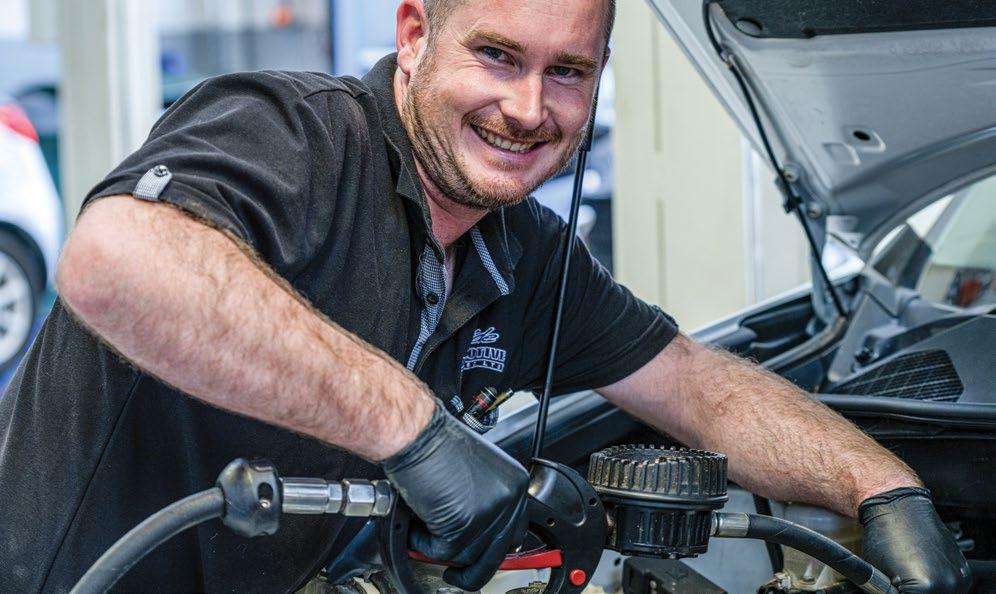
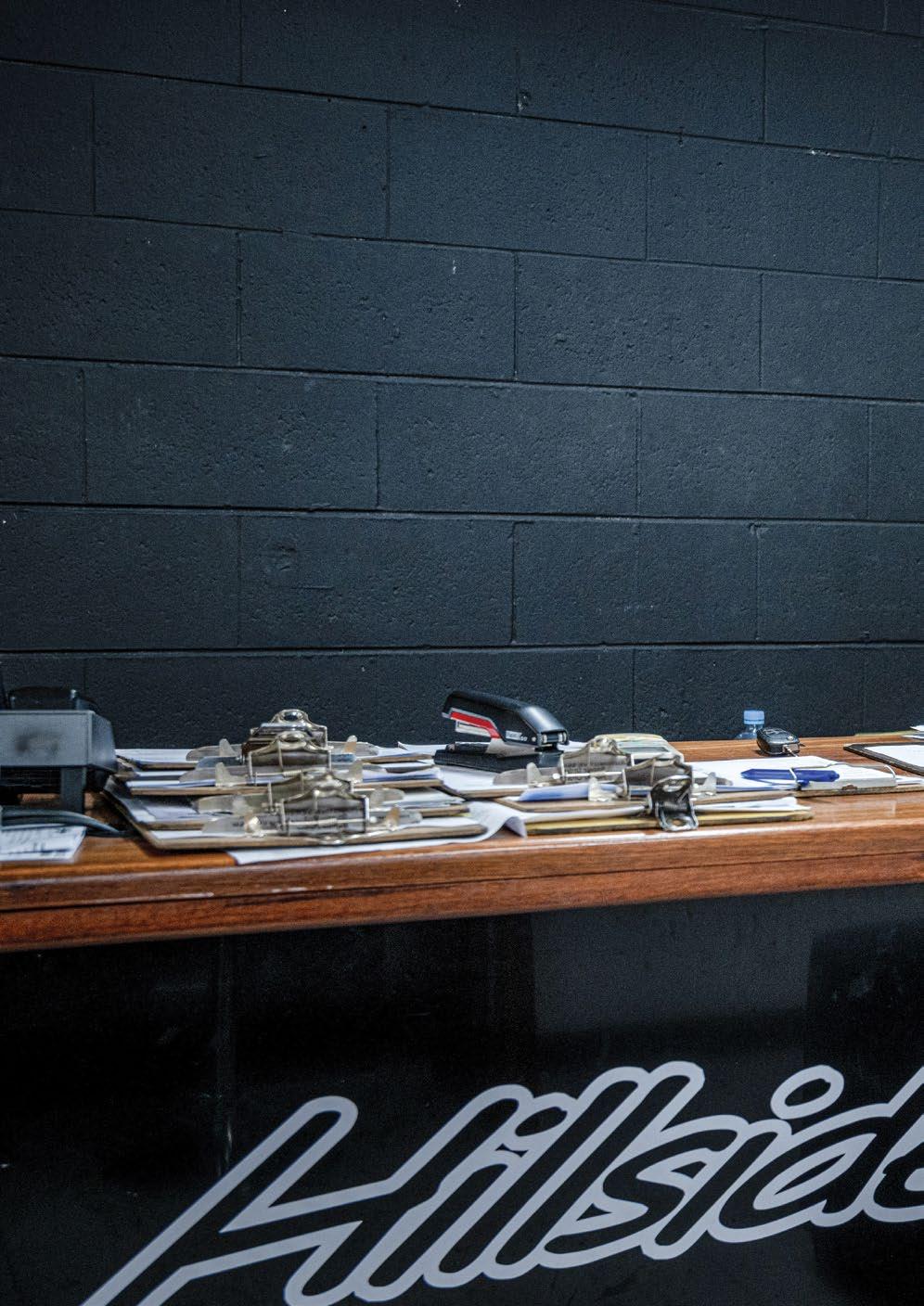
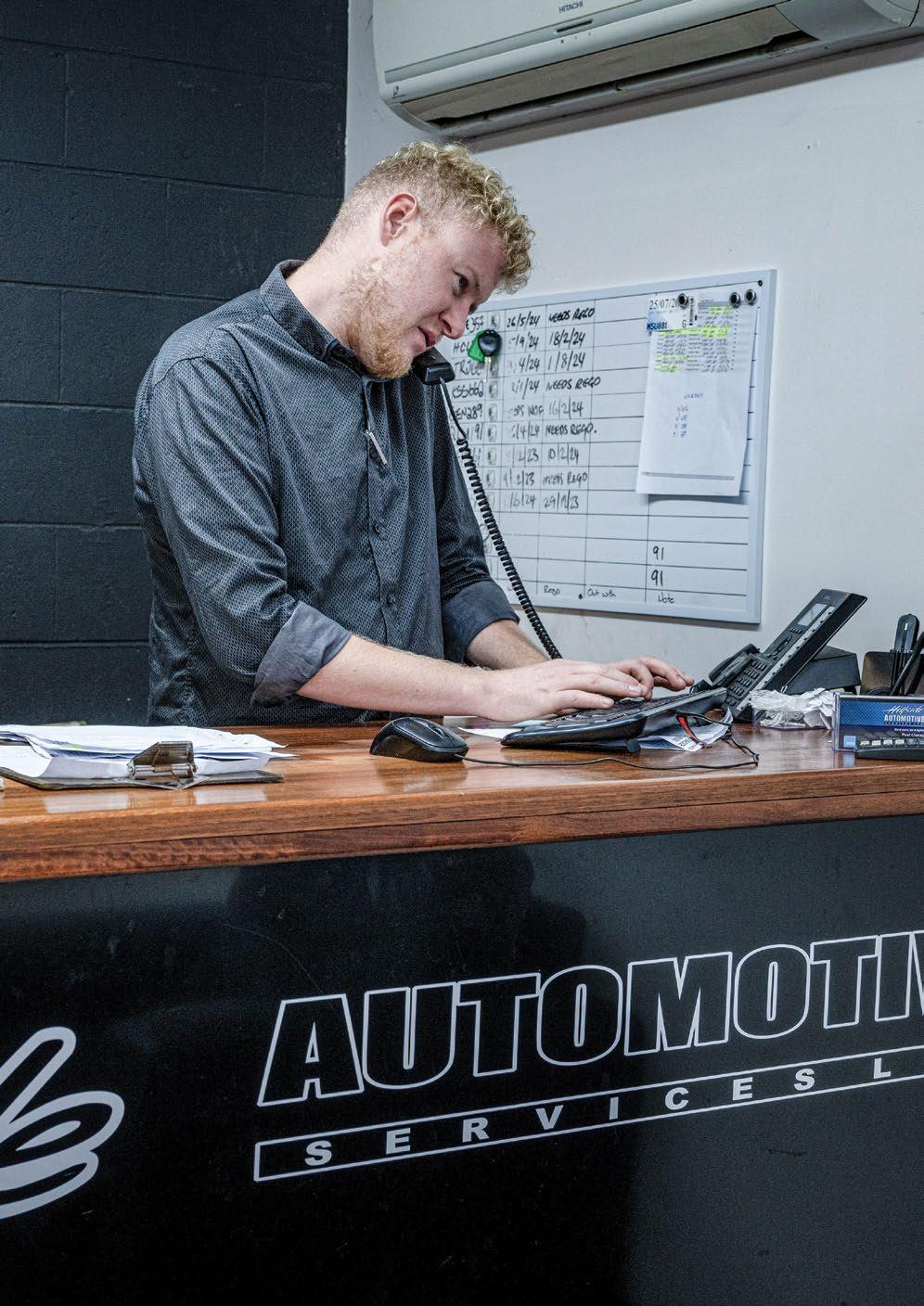




At Capricorn, we’re proud to be part of the Australian and New Zealand automotive community. We’re a Member-owned organisation with over 30,000 small to medium business Members.
Our Members include a broad mix of businesses (from independent workshops to national franchises) working across mechanical, electrical, collision repair and other automotive services.
But Capricorn is more than just a business partner. Each year, we publish the State of the Nation report to provide a clear and grounded view of how the industry is evolving. We listen to what’s happening in workshops, what challenges businesses and their teams are facing, and where new opportunities are emerging.
This report is developed for people who work in the industry, business owners and policymakers. It offers insights into the pressures affecting the sector, the support needed to strengthen it, and the areas where growth and innovation are possible.
Capricorn uses these findings to advocate for the industry, raise awareness of key issues, and bring people together to drive meaningful change. Our aim is to support a strong, sustainable future for automotive businesses and our Members who run them.
If you are interested in finding out more, visit capricorn.coop
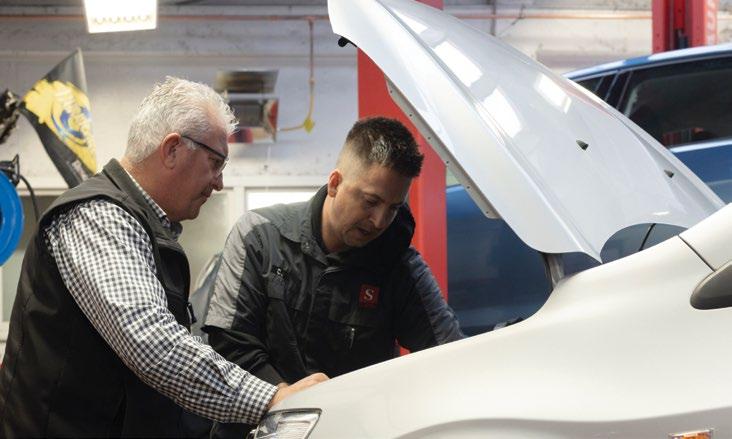
Capricorn New Zealand
5,500
Number of Capricorn Members: traded through Capricorn ~$0.7b
33,550 people employed by Capricorn Members
Number of women
7,200
Number of apprentices 3,900
$1.2m average turnover
Now in its sixth year, Capricorn’s State of the Nation report continues to offer a comprehensive snapshot of New Zealand’s automotive aftermarket industry – built from the ground up with insights from the people who live and breathe it every day. Since its inception in 2020, the report has helped highlight the challenges and opportunities facing automotive businesses.
Over the years, the industry has navigated significant disruptions: a global pandemic, persistent skills shortages, and a cost-of-living crisis. Yet, through it all, Capricorn Members have consistently demonstrated resilience, optimism, and a strong belief in the value of their work. This year, 330 business owners across New Zealand contributed to the findings, offering a diverse and authentic view of the sector.
Achieving a good work-life balance continues to be the most pressing challenge, as business owners juggle the demands of running their operations." “
The 2025 report draws on two key sources: Capricorn’s own State of the Nation research, and the EV & Lithium-Ion Battery Safety Research – 2025 conducted by Painted Dog Research. With analysis provided by independent research partner Klein, the report delivers rich insights into the current state and future direction of the industry.
So what did we learn? Despite ongoing economic and labour pressures, Capricorn Members remain committed to growth.
Achieving a good work-life balance continues to be the most pressing challenge, as business owners juggle the demands of running their operations. While there are signs that the skills shortage is gradually easing, cost-of-living pressures persist – placing strain on cash flow and profitability.
Encouragingly, business owners are not standing still. They are adapting, innovating, and proactively seeking solutions to navigate these challenges. Many are investing in operational efficiency – streamlining workflows, adopting digital tools like online booking systems, and improving workshop capacity. Upskilling staff and hiring apprentices have become key strategies to address the skills shortage, with apprentice employment rising significantly since 2022. Others are responding to cost-of-living pressures by adjusting service models, offering flexible pricing, and focusing on customer retention through improved communication and service quality.
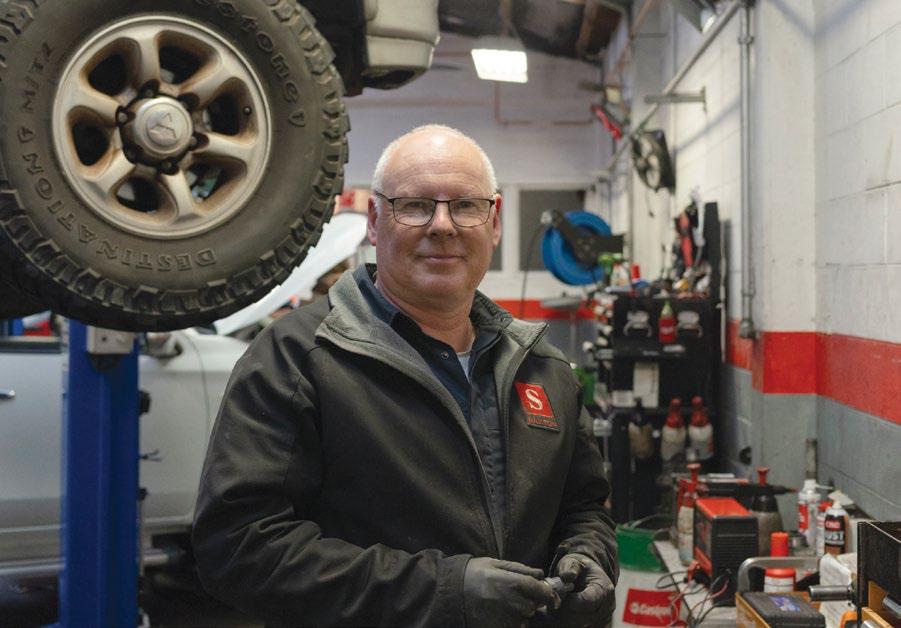
To future-proof their businesses, owners are also preparing for the rise of electric and hybrid vehicles by pursuing targeted training and upgrading workshop equipment. These efforts not only help them stay competitive but also build team confidence and improve long-term profitability. The result? A record 11% increase in average turnover – the highest since the first State of the Nation report was published.
Throughout the report, case studies from the Capricorn Community bring the data to life, offering real-world examples of resilience, innovation, and success. These stories, alongside the data, provide a valuable resource for anyone interested in automotive and mobility in New Zealand.
Capricorn uses this research to advocate for the sector, raise awareness of the issues affecting businesses and their teams, and unite the industry to drive positive change. Whether you’re turning spanners or shaping policy, the State of the Nation report is designed to help you understand what’s happening and what’s needed to keep the industry moving forward.
Thank you for being part of this journey as we continue to support and strengthen the automotive industry together.

Brad Gannon Group CEO, Capricorn
New Zealand
Source: Capricorn State of the Nation – Wave 6
3.3 average number of hoists per workshop
42.5 average number of vehicles seen each week
challenges faced by businesses
36%
Despite the time pressures of running a business and the ongoing economic pressures faced by consumers, the automotive industry in New Zealand continues to show resilience. This year’s findings reveal that 80% of Capricorn’s New Zealand Members are planning to grow or improve profitability over the next 12 months. This forward-looking mindset seems to reflect growing confidence in the sector’s potential, supported by a stabilising economy, easing inflation, and increased adaptation to emerging technologies.
Apprenticeships continue to play a vital role in addressing the skills shortage across New Zealand’s automotive industry. In 2025, 43% of business owners reported employing an apprentice, and 33% indicated they are likely to take one on in the future – demonstrating a strong commitment to developing the next generation of skilled workers.
Encouragingly, there is also a noticeable increase in female participation across both apprenticeships and qualified roles with just over a quarter of businesses (28%) employing a female mechanic or apprentice. This shift signals growing inclusivity within the trade and reflects the industry’s progress in broadening its talent pool and challenging traditional perceptions of automotive careers.
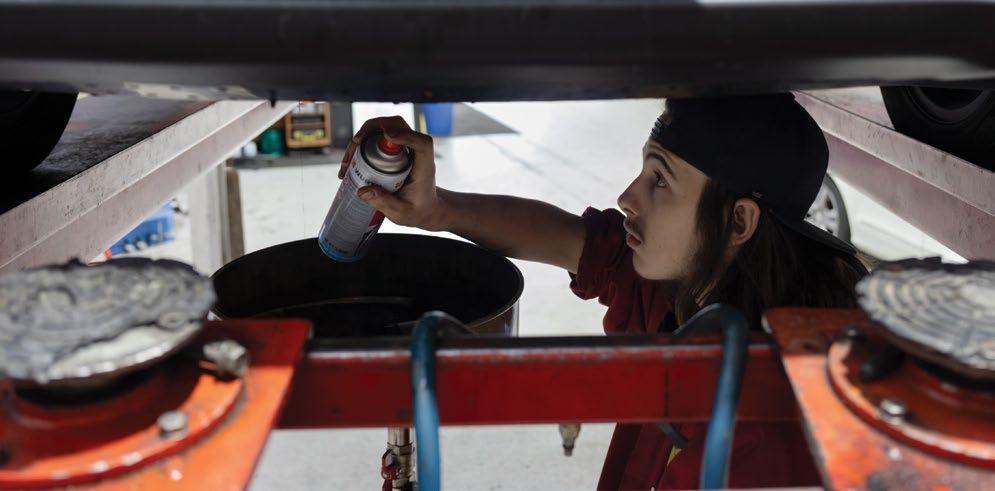
Consistent with previous years, the top challenge for businesses in 2025 remains finding the right work-life balance, with 52% of Members identifying it as a key concern. Taking time away from work continues to be difficult for many business owners who carry the weight of daily operations. Financial pressures are also mounting, with cost-of-living impacts making customers more price-sensitive – challenging businesses to rethink how they manage services and pricing.
Despite these ongoing pressures, there are signs of progress. Fewer businesses are struggling to find qualified staff, with only 41% reporting recruitment challenges this year – a notable improvement from 2023. Overall, the data suggests that while challenges persist, their intensity may be easing. This shift points to a more stable economic environment and growing adaptability among business owners.
The rise of electric and hybrid vehicles is reshaping New Zealand’s automotive landscape, with workshops increasingly adapting to meet evolving service demands. Currently, 77% of businesses report servicing EVs, which account for 18% of their workload. Over the next decade, this is expected to more than double, with hybrid vehicles projected to make up 31% and battery electric vehicles (BEVs) 23% of total workload
While 59% of businesses are actively keeping pace with new technologies, many still feel underprepared. Only 18% feel ready for a surge in EVs, and 28% for hybrids highlighting the need for targeted training, safety awareness, and investment in equipment. Encouragingly, 44% of businesses plan to increase their focus on BEVs and 55% on hybrids in the next two years, showing a clear intent to evolve.
This transition presents both a challenge and an opportunity. With the right support— through training, mentoring, and policy incentives—businesses can future-proof their operations, strengthen their teams, and lead the charge toward a low-emissions future.
52% of members identify work-life balance as a key concern
77% of businesses already service electric and hybrid vehicles
Now in its fourth year, the Capricorn Confidence Index offers a barometer for the health of the automotive aftermarket industry. It’s based on responses to three key questions:
• Confidence in the automotive industry
• Confidence in their own business' future
• Plans to grow or improve profitability over the next 12 months
These responses are combined into a single score out of 100 points, providing a simple way to track sentiment across the sector.
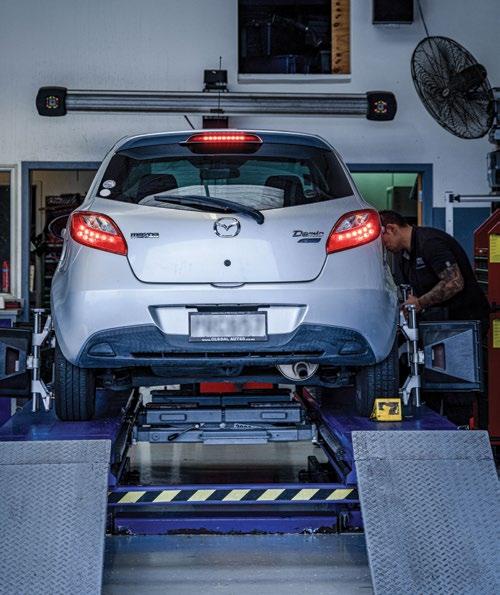
In 2025, the Capricorn Confidence Index rose to its highest level at 71.2, up from 68.0 in 2024 – indicating a modest but encouraging lift in overall business sentiment.
While overall business and industry confidence has softened slightly compared to last year, 80% of businesses remain focused on growth and improving profitability over the next 12 months – contributing to the uplift in the Capricorn Confidence Index.
This year’s results present a promising outlook of New Zealand’s automotive industry, highlighting resilience and determination of businesses navigating both global and local economic challenges. Despite ongoing pressures such as:
• finding a healthy work-life balance;
• financial pressures;
• cost-of-living concerns; and
• staff shortages.
many workshop owners are focusing on what they can control – investing in growth, improving profitability, and adapting to new vehicle technology. This proactive mindset is reflected in the rise of the Capricorn Confidence Index and demonstrates the strength, leadership, and resilience of business owners that continue to drive the sector forward.
Capricorn Confidence Index
80% of workshops plan to grow or improve profitability
$1.2 million average turnover (based on gross sales)
The Confidence Index reflects how businesses are responding to real-world pressures like inflationary pressures, cost-of-living impacts and labour shortages. It shows that many workshops are adapting by improving efficiency, reducing costs, and investing in smarter ways of working.
For industry professionals, it provides a benchmark for how peers are feeling and where opportunities for growth and improvement are emerging. These insights help guide practical decisions that can strengthen the sector and support the people working in it.
42.5 vehicles seen per week on average
6.1 employees per workshop on average
In 2025, businesses across New Zealand continued to show resilience following global disruptions in previous years. This year 41% of workshops reported high confidence in the future of the industry – slightly down from 44% last year. Similarly, confidence in individual businesses has dipped modestly, with 51% of workshops expressing high confidence in 2025 compared to 52% in 2024.
These small shifts do not suggest instability. Instead, they reflect a more grounded and realistic view of current conditions. Business owners often feel more confident about their own operations than the broader industry. This is likely because they have greater control over their day-to-day environment, while broader factors – such as economic conditions and labour market trends – continue to create uncertainty at the industry level.
Understanding confidence levels helps identify where support is most needed. For policymakers, these insights can guide workforce planning, training investment, and small business support programs. For industry leaders, it highlights the importance of tools and resources that help businesses adapt to change – whether through technology, operational improvements, or succession planning.
Confidence data also helps pinpoint where opportunities lie. A steady outlook, even in the face of challenges, shows that businesses are ready to grow and evolve. Supporting that momentum is key to ensuring the long-term health of the automotive sector.
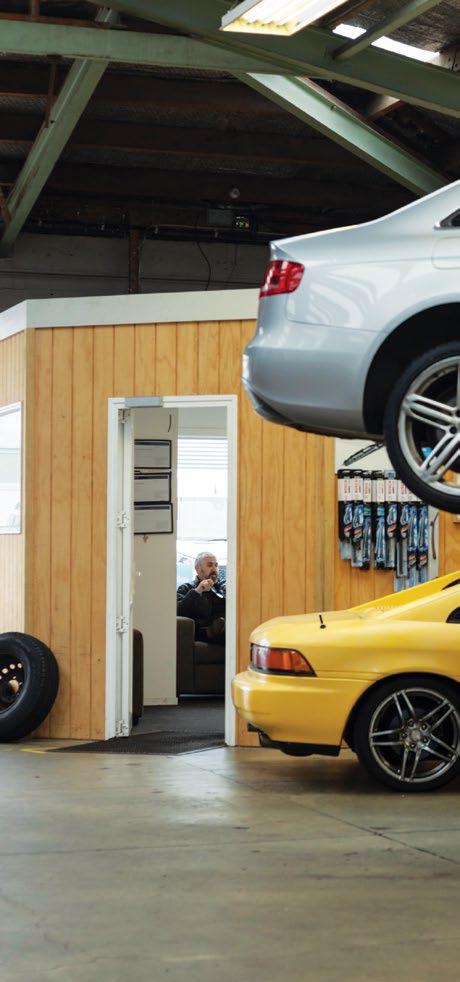

Q. How confident are you in your business' future, specifically in the next 12-18 months?
Q. Thinking about the automotive industry overall, how confident are you in the industry's future?
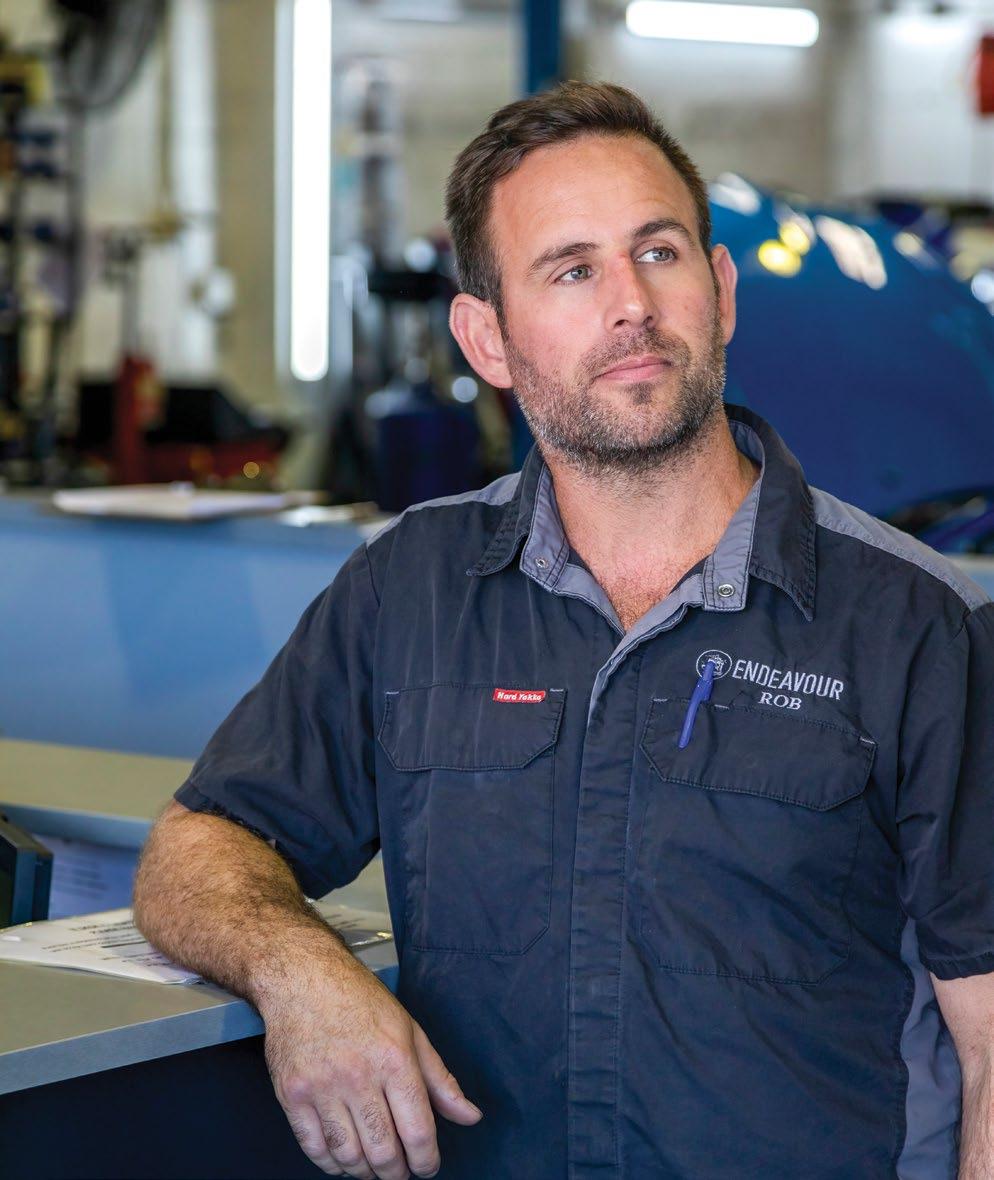
41% of workshops reported high confidence in the future of the industry
51% of workshops reported high confidence in their business
In 2025, growth is a particularly strong focus for automotive businesses across New Zealand. According to the State of the Nation report, 80% of workshop owners said they plan to expand or improve profitability over the next 12 months. This shows a resilient and forward-looking mindset, even in the face of ongoing challenges.
Workshop owners are prioritising three key areas to drive growth:
• Improving business efficiency
• Increasing profit margins
• Reducing operational costs
These areas reflect a practical approach to strengthening performance and building financial stability. By focusing on what they can control, businesses are positioning themselves to thrive.
The strategic focus on business efficiencies appears to be paying off, with workshop owners reporting an increase in the number of vehicles seen per week from 38.2 in 2024 to 42.5 in 2025. In addition, business owners are reporting an average increase of 11% in turnover (based on gross sales) to just over $1.2m.
Plans to grow business
Q. Do you have plans in place to grow your business or improve its profitability over the next 12 months?
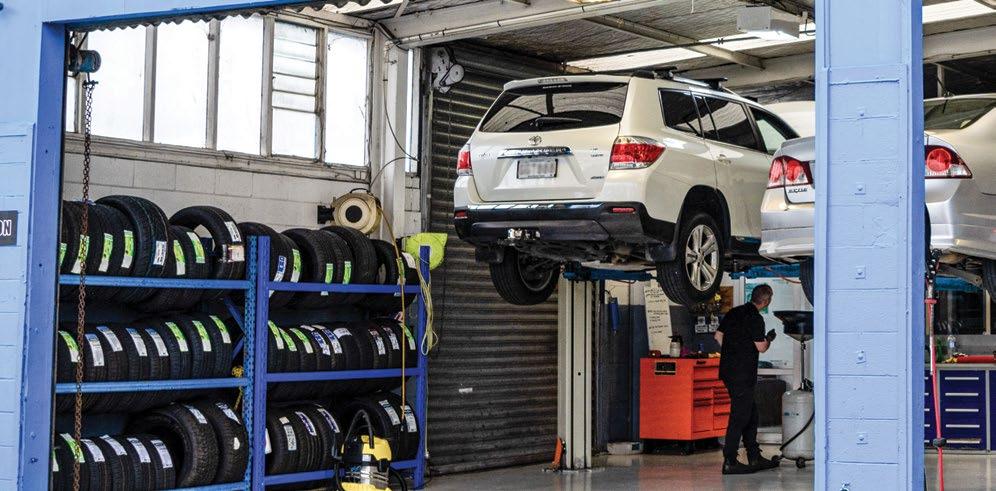
$1.2m was the average turnover for 2025
Improve business e ciency
Increase profit margins
Reducing operational costs
Upskill yourself or sta
Win more customers
More advertising and marketing
Employ more sta
Focus more on how to retain existing customers
Improve employee conditions (e.g. pay, non-cash benefits) to improve employee retention
Increase the capacity of your workshop
Change or expand services o ered (e.g. EVs)
Expand my business into new industries (e.g. marine, agriculture etc)
Opening new workshops or acquiring workshops
Other (specify)
Q. What plans do you have to grow your business or improve its profitability over the next 12 months?
The data paints a clear picture: while challenges persist, momentum is building across the automotive sector. Businesses are not just surviving – they’re adapting, innovating, and in many cases, growing. This progress presents a valuable opportunity for both policymakers and industry to step in with targeted support that amplifies what’s already working. By recognising where businesses are focusing their efforts, stakeholders can help accelerate sustainable growth and ensure the sector remains resilient and competitive.
For policymakers, these findings highlight where support can make a real difference. At Capricorn we are looking at options to work with other organisations on programs
that help businesses improve efficiency, manage costs, and invest in technology, which have the potential to amplify this momentum. Additionally, workforce development and training initiatives could also possibly help businesses meet growing demand.
For mechanics and workshop owners, the data shows that growth is achievable, even in a tough environment. It’s a reminder that small changes in operations can lead to big improvements in performance.
Overall, the data shows that growth is not just a goal, it’s already happening. By recognising where businesses are focusing their efforts, policymakers and industry can work together to support sustainable progress and help the sector thrive.
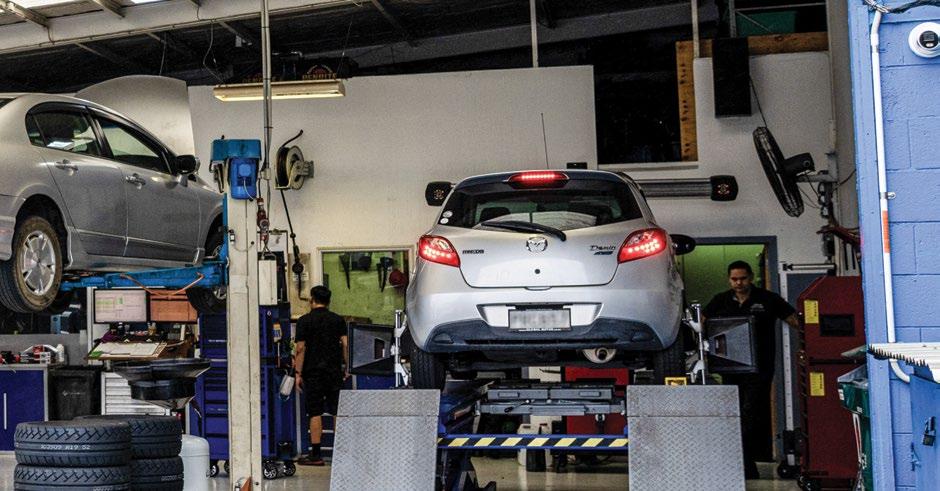
When Frans took over a struggling panel shop in Milford in early 2024, few could have predicted the transformation that would follow. The business was barely scraping by, with just $20,000 in the bank and a monthly turnover of $50,000. But Frans saw potential—not just in the location, but in the people and the community around it.
Fast forward to 2025, and Frans’ business, CarPro, is now turning over more than $300,000 a month. That’s a sixfold increase in less than two years. His team has grown from three to eleven, and the workshop has become a preferred repairer for major insurers and franchises. The secret? Frans’ unwavering belief in people, his hands-on leadership, and a genuine commitment to customer care.
“I believe if you help people, it comes back to you,” Frans explains. “A lady came in before her hip operation, worried about the cost. I told her not to worry—we’d fix her car and not charge her. She left in tears, and now her whole family comes to us.”
This kind of generosity isn’t just good karma—it’s good business. Word of mouth has become CarPro’s most powerful marketing tool. Frans doesn’t advertise. He doesn’t need to. His reputation speaks for itself.
“If you’re happy, say so. If not, be honest,” he says. “We do the little extras—vacuuming a tradie’s van, washing every car before it goes out. It’s those small things that people remember.”
Frans’ story reflects the broader trends captured in Capricorn’s 2025 State of the Nation report. Across New Zealand, automotive businesses are showing resilience and a strong appetite for growth. In fact, 80% of workshop owners say they plan to expand or improve profitability over the next 12 months. Frans is living proof that growth is possible—even in challenging conditions. But it hasn’t all been smooth sailing. Like many others in the industry, Frans has faced staffing challenges. Finding the right people has been tough, especially with the business growing so quickly. He’s had to trial and let go of several staff members, always striving to build a team that shares his values and work ethic.
“I’m honest from the start,” Frans says. “We do a 90-day trial. If it’s not working, we shake hands and move on. It’s about protecting the team and the customer experience.”
This approach aligns with the report’s findings that while the skills shortage remains a concern, it’s beginning to ease. In 2025, only 36% of businesses reported being affected, down from 59% in 2023. Frans’ emphasis on communication, team culture, and investing in the right tools has helped him stay ahead.
“We ask our staff every month—are you happy? What do you need? If a tool is slowing you down, tell us. We’ll fix it,” he says. “It’s not just about a BBQ once a year. It’s about showing up every day and caring.”
Frans also embodies the report’s insight that business owners often feel more confident about their own operations than the industry as a whole. While industry-wide confidence dipped slightly in 2025, 51% of workshops still expressed high confidence in their own business.
“I’ve never done anything else,” Frans says. “This is my passion and my life.”
His advice to others in the trade is simple: go the extra mile, make sure the customer is happy, and build a team that feels like family. It’s a formula that’s working—and one that’s helping to reshape perceptions of the automotive industry.
As the sector continues to evolve, stories like Frans’ remind us that success isn’t just about numbers. It’s about people, purpose, and the power of doing things right.
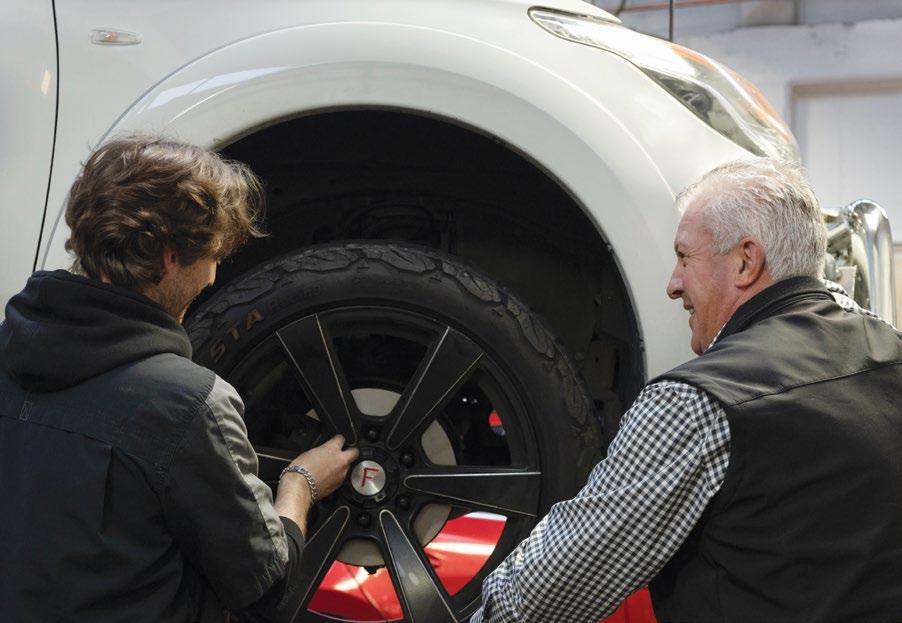
In 2025, workshop owners across New Zealand continued to encounter familiar challenges, though the intensity of these pressures appears to have eased compared to previous years.
Maintaining a healthy work-life balance remains the top challenge faced by business owners in 2025. For the second consecutive year, 52% of workshop owners reported that finding time to rest and manage the demands of both work and personal life is a major concern. This consistency suggests that operational pressures may be easing, and New Zealand’s economic outlook is showing signs of improvement – with inflation moderating and interest rates gradually declining. However, the personal toll of running a business continues to weigh heavily. These findings highlight the need for greater support, sustainable practices, and wellbeing initiatives within the industry to help owners manage both professional and personal demands more effectively.
While “finding good staff” remains among the Top 5 challenges, it is encouraging to see a noticeable improvement in this area. This year, 41% of business owners identified staffing as a key challenge – a significant 15% drop from 56% in 2023.
While the core challenges facing the industry remain largely unchanged, their intensity appears to be easing compared to last year. This suggests that although issues persist, many businesses are finding more effective ways to manage them. Financial concerns –particularly around cash flow and profitability – are on the rise however, with 42% of Members identifying them as a key challenge in 2025, up from 22% in 2023. This increase reflects the pressures of business growth, as seen in higher turnover and more vehicles serviced per week.
There’s a growing perception among job seekers that the automotive sector is less appealing than other industries, with 12% of business owners identifying this as the biggest challenge in addressing the skills shortage. However, it’s encouraging to see that flexible work arrangements are not a major concern. Workshops are increasingly adapting to meet employee expectations, creating more supportive and attractive work environments. Nearly a third (29%) of business owners are open to improving employee conditions to boost retention and support business growth.
41% of business owners identify staffing as a key challenge
29% of business owners are open to improving employee conditions
Having a good work-life balance or finding time take a break/holiday
Price sensitive customers/cost of living pressures
Financial concerns (cash flow, profitability)
Finding good sta (including apprentices)
Increase in parts price
Increasing car complexity making it harder to repair and service cars
Balancing di erent parts of your role (e.g. mechanical work vs. admin)
Insurance companies determining prices
Access to te chnical information and diagnostics e.g. scan tools
Keeping up to date with training and skills development
Keeping sta long term
Customers wanting to supply their own parts
Shortage of parts
Negative industry perceptions
Electrical vehicle repairs and maintenance
Sourcing sustainable materials and parts
Keeping up with the digital age
e.g. online booking, online quotes
Environmental considerations
e.g. sustainable waste management
Capped price servicing/longer warranties from dealerships
Customers not coming back/lack of trust
Other (specify)
Q. What are the biggest challenges that you face in running an automotive business?
The challenges facing New Zealand’s automotive industry – such as work-life pressures, price-sensitive customers and staffing shortages – are not just business concerns; they have broader implications for economic resilience, employment, and community wellbeing. While many workshop owners are showing adaptability and resilience, the insights point to areas where targeted support could make a real difference.
For policymakers, targeted initiatives such as funding for apprenticeship programs, industry-specific training, and upskilling can help address the skills shortage and attract new talent. Promoting the automotive trades as viable and rewarding career paths – especially to younger and more diverse demographics – can help shift perceptions and
broaden the talent pool. policymakers can also support mental health and wellbeing programs tailored to small business owners, recognising the personal toll of running a business.
For business owners, understanding these shared challenges could help to identify where to focus efforts, whether it’s improving recruitment strategies, investing in staff development, or adjusting service models to meet changing customer behaviours.
These challenges are not new, but they are evolving. By working together, policymakers and industry can help businesses adapt and thrive, ensuring the automotive sector continues to serve communities and contribute to the economy.
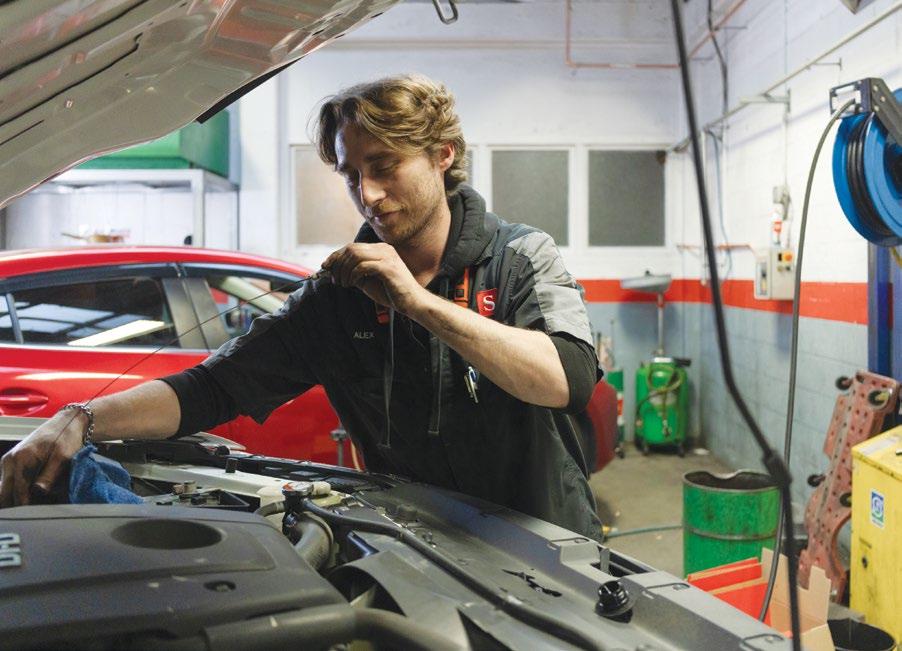
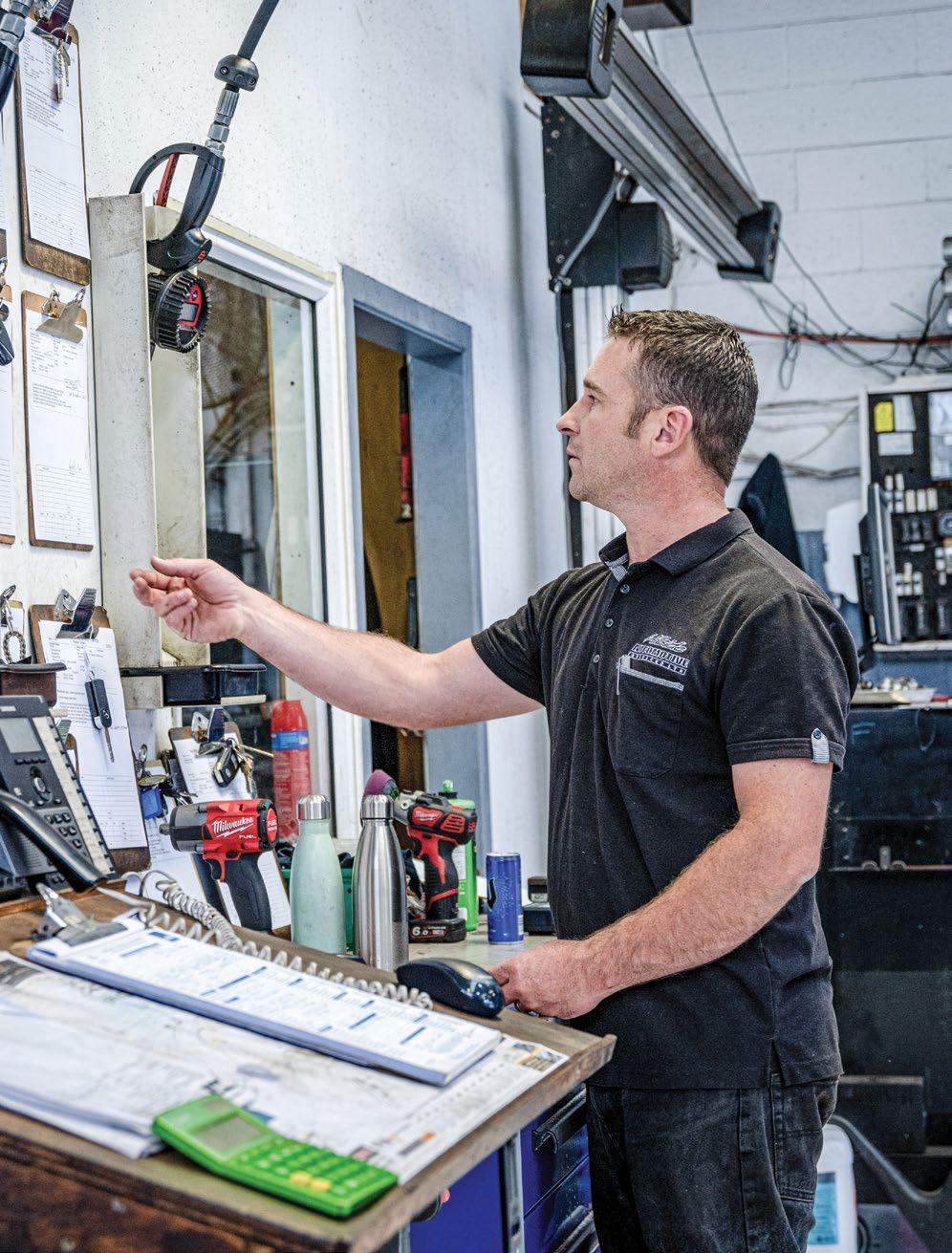
The skills shortage continues to be a challenge facing the New Zealand automotive aftermarket. However, our 2025 State of the Nation data suggests the pressure is beginning to ease, offering a more optimistic outlook for the sector. This year, 36% of businesses reported being affected down from 38% in 2024 and a significant drop from 59% in 2023. These figures suggest that while the issue persists, the pressure is gradually easing.
Of the 36% of business owners that reported facing staffing issues, 9% had unfilled positions, while 27% said they were actively struggling to find qualified workers.
While staffing pressures seem to be easing, this challenge has been reported in every edition of the State of the Nation report, and its persistence highlights the need for long-term, coordinated solutions.
The most common issues reported by businesses include:
• Difficulty finding skilled staff
• Salary expectations that are hard to meet
• The perception that automotive trades are less attractive than other industries
These challenges are placing added pressure on existing staff due to increasing workloads and contributing to stress among business owners – particularly in maintaining a healthy work-life balance. Customers are also feeling the impact, with business owners reporting longer turnaround times.
Finding skilled sta
Salaray expectations
The automotive sector is less attractive than other industries
Finding permanent sta
Challenges with recruitment process
Finding apprentices
Availability of training & skills development
Retaining sta
Accommodating flexible work arrangements
Other (specify)
Q. What are the biggest challenges that you currently face in terms of skill shortages?
Increased workload for sta
Longer turnaround times for customers
Negative impact on work life balance
Reduced productivity due to insu cient sta to handle the workload
Unable to focus on growing the business
Turning away work
Decreased employee moral due to increased workload and stress
Losing customers as we are unable to meet their expectations
Q. What effect has being understaffed had on your business?
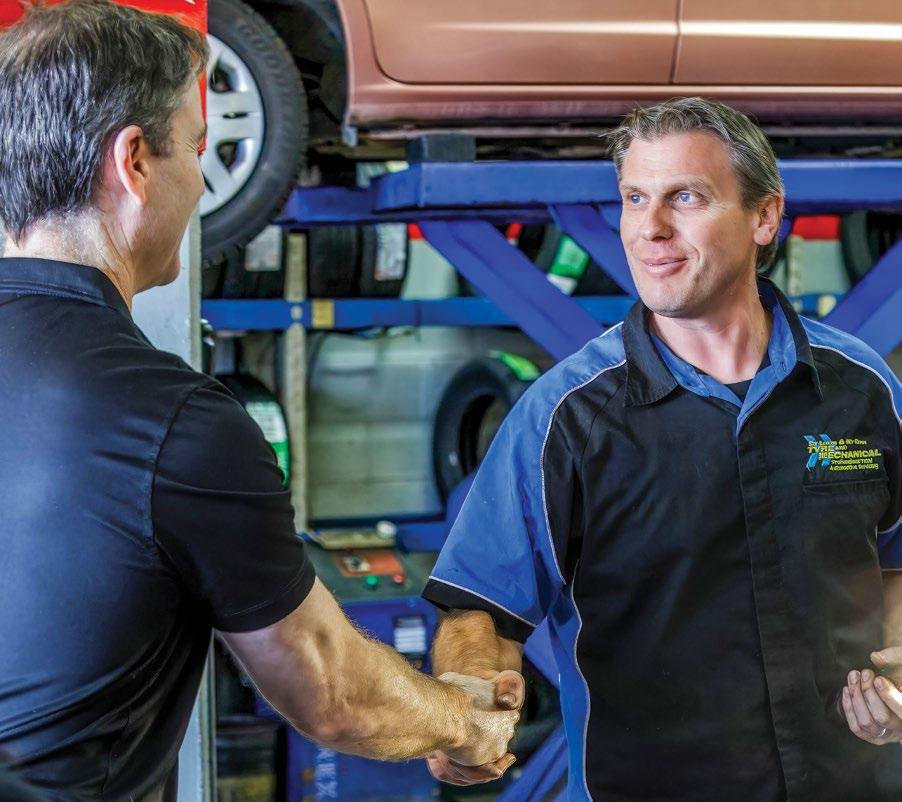
The skills shortage in New Zealand’s automotive industry is not new, but it remains a pressing issue. While recent data suggests the pressure is beginning to ease, continued focus is essential to ensure the sector remains strong, competitive, and future-ready.
For policymakers, these findings highlight the importance of sustained and targeted action. Promoting the trade and supporting industry organisations in their efforts to promote automotive careers – particularly among school students and women – will help build a more diverse and skilled talent pipeline. By investing in inclusive workforce development and vocational training, policymakers can play a key role in securing the long-term health of the industry.
For the industry, it’s a call to work together on long-term solutions, whether that’s improving career pathways, modernising perceptions of the trade, or creating more attractive working conditions.
Importantly, it’s not just business owners feeling the strain. The ongoing skills shortage is directly impacting employees as well. 22% of business owners report that understaffing is increasing workloads for their teams, and 11% say it’s leading to lower employee morale due to stress and fatigue.
Working to improve the skills shortage is not just about filling roles, it’s about building a futureready workforce that can support the growth and sustainability of the automotive industry.
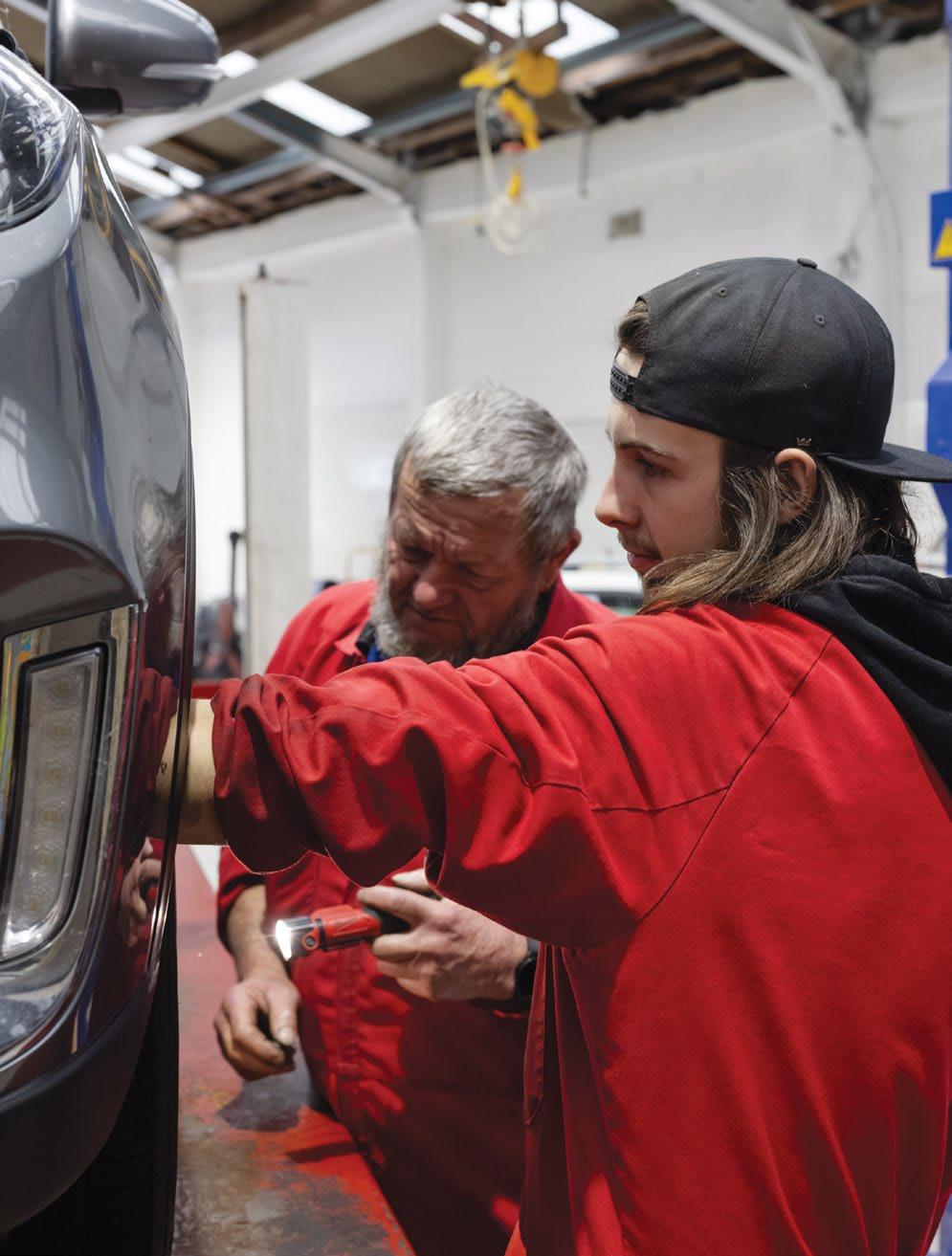
For Tas, running a successful workshop isn’t just about fixing cars—it’s about fixing the system that supports the people who do. With decades of experience under his belt, Tas has seen the automotive industry evolve, and he’s not afraid to speak up about what’s working—and what’s not.
“Every day, we see the impact of the skills shortage,” Tas says. “We’ve had apprentices finish their training who don’t even know how to test a battery. It’s like a chef finishing their trade and not knowing how to hold a knife.”
Tas runs a busy workshop that’s been part of the local community for years. His team is tight-knit, with many staff members staying on since 2012. But finding new talent with the right mindset and basic skills has become increasingly difficult.
“It’s not just about qualifications,” he explains. “It’s about common sense, passion, and the ability to problem-solve. If someone can’t follow instructions or think on their feet, they won’t last here.”
His experience reflects a broader trend highlighted in Capricorn’s 2025 State of the Nation report. While the skills shortage is beginning to ease—with only 36% of businesses reporting issues this year, down from 59% in 2023—it remains a persistent challenge. Many business owners, like Tas, are calling for a return to more hands-on, workshop-based training.
“I think we need to go back to the old style of apprenticeships,” Tas says. “Let them spend real time in the workshop. The current system doesn’t always prepare them for the job.”
Despite these frustrations, Tas remains committed to mentoring his team and creating a supportive work environment. He believes in fair pay, flexibility, and giving his staff the chance to spend time with their families. It’s a strategy that’s helped him retain good workers—even when the industry is stretched thin.
“Most of my team have been with me for years,” he says. “The ones who didn’t fit, they’ve come and gone. But the good ones stay because we look after each other.”
Tas also believes the industry needs a perception shift to attract new talent— especially younger people and those from under-represented groups.
“We need to stop thinking of mechanics as just ‘fixers’ and start promoting the trade as a career in diagnostics and problem-solving,” he says. “It’s not just about turning a wrench anymore. It’s about using your brain.”
This aligns with the report’s findings that the industry is evolving. With the rise of electric and hybrid vehicles, workshops are adapting to new technologies and service demands. In fact, 77% of businesses now service EVs, and many expect that number to double in the next decade.
Tas is optimistic about the future, especially as the industry becomes more professional and better recognised for its essential role.
“After COVID, we realised how important we are,” he says. “People need their cars. We’re essential workers. And now, we’re finally starting to be recognised and rewarded for that.”
Wairau Valley, NZ
The 2025 State of the Nation report shows that 80% of workshop owners plan to grow or improve profitability over the next 12 months. Tas is one of them. He’s focused on improving efficiency, reducing costs, and investing in the right people.
But he also knows that growth doesn’t happen in isolation. He’d like to see more support from government and industry bodies—especially when it comes to training, subsidies, and tools that help small businesses thrive.
“Capricorn thinking about this stuff is great,” Tas says. “We need more of that. More support, more practical help. That’s what will make a difference.”
Tas’s story is a powerful reminder that behind every workshop is a leader juggling challenges, mentoring the next generation, and keeping the wheels of the industry turning. His voice adds depth to the data, showing that while the road ahead may be bumpy, there’s plenty of drive left in the tank.
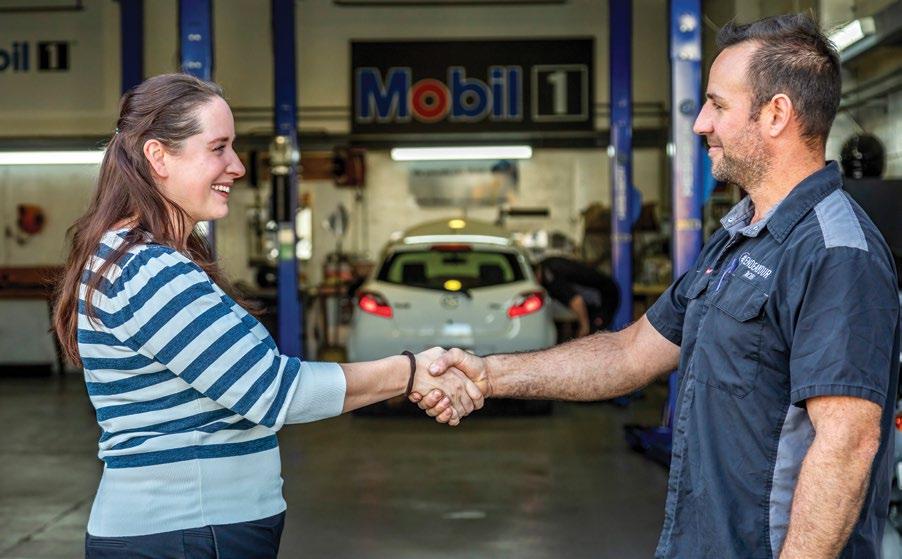
In 2025, maintaining a healthy work-life balance remains the top challenge for workshop owners across New Zealand, with 52% of business owners reporting it as a major concern. This consistency points to a deeper issue – one that goes beyond operational pressures like price-sensitive customers or rising parts costs. The personal toll of running a business continues to weigh heavily on owners.
Running a micro or small-sized automotive business often means long hours, juggling workshop responsibilities with administrative tasks, and dealing with unpredictable workloads. For many owners, especially those wearing multiple hats, downtime is limited and taking a break or holiday can feel out of reach. These pressures not only affect wellbeing but also contribute to burnout and fatigue.
But the deeper issue isn’t just about time – it’s also about financial strain. Cash flow and profitability have emerged as growing concerns, with 42% of Members identifying them as key challenges in 2025, up from 22% in 2023. Even though many businesses are busier than ever – servicing more vehicles and reporting higher turnover – the ability to convert that activity into sustainable profit is proving difficult. Rising parts prices, cost-of-living pressures, and price-sensitive customers are squeezing margins and making it harder to maintain financial stability.
In fact, 13% of Members say they are turning away work due to being understaffed –missing out on potential revenue simply because they don’t have the capacity to take it on. This highlights the urgent need for support in both workforce development and financial management.
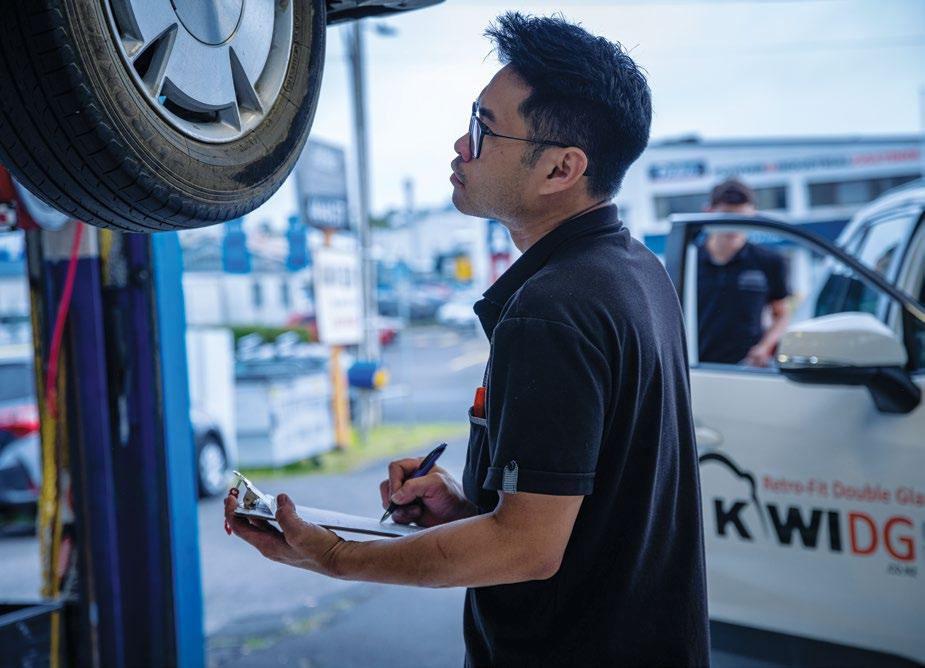
52% of business owners are struggling with work-life balance
For Business owners, there’s an opportunity to explore smarter business practices – such as improving workshop efficiency, introducing online booking systems, and refining pricing strategies to better reflect service value.
Policymakers also have a vital role to play in supporting the industry’s future.
Strategic initiatives – such as funding for apprenticeships, tailored training programs, and mental health resources for small business owners – could deliver meaningful impact. By actively promoting automotive trades as fulfilling and future-focused career options,
especially to younger and more diverse groups, these efforts can help reshape perceptions, attract fresh talent, and ease the pressure caused by ongoing skills shortages.
Despite these challenges, many businesses are showing resilience. Owners are investing in upskilling themselves and their teams, staying current with the latest automotive technologies, and adapting their operations to better support staff. These efforts reflect a commitment to sustainability - not just in business performance, but in the wellbeing of the people who drive the industry forward.
The automotive industry is gradually becoming more inclusive, with more women stepping into a wider range of roles across workshops and businesses. In 2025, women made up 21% of the total workforce, a figure that has remained steady over time. However, the types of roles women are taking on are expanding and that’s a positive sign for the future of the industry.
Female participation in admin and officebased roles remains high, with 82% of businesses reporting at least one woman in these positions. This shows that women play a vital role in the day-to-day operations of automotive businesses.
Encouraging trends are also emerging in qualified roles. The percentage of female qualified mechanics has more than doubled, increasing from 8% in 2024 to 17% in 2025. Similarly, female representation among spray painters has grown from 23% to 28% over the same period. These gains reflect the industry’s evolving culture and its commitment to creating more inclusive pathways for women in automotive careers. These increases reflect a meaningful shift in attitudes and opportunities. More women are entering the trades, and more businesses are recognising the value of a diverse workforce. This not only helps address the ongoing skills shortage but also strengthens the industry’s long-term sustainability.
Supporting more women into trade and technical roles can help expand the talent pool, strengthen teams, and build a more resilient industry.
For policymakers, these findings highlight the need for targeted action. Investment in inclusive training programs, school-based career awareness, and industry promotion could help attract more women into automotive careers. Supporting small businesses with infrastructure upgrades, mentorship initiatives, and hiring incentives could also help create more welcoming and equitable workplaces.
For the industry, it’s a call to work together on long-term solutions, whether that’s showcasing female role models, modernising workplace culture, or creating clearer career pathways for women in trade roles.
16% of all women employed, are working ‘on the tools’ 21% of the total workforce are women
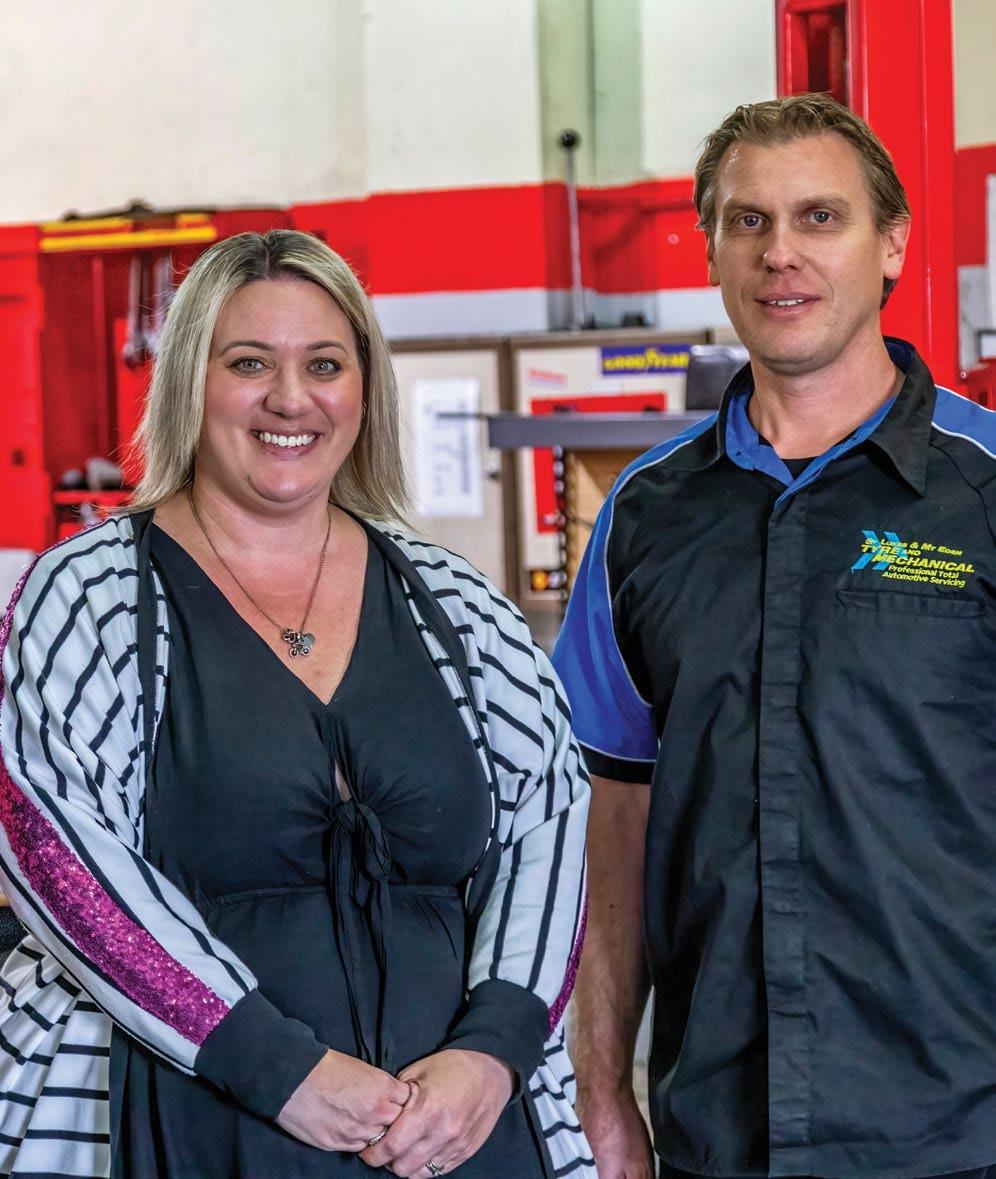
When Zel and her husband Jure moved to New Zealand from Serbia, they brought with them a dream of building a better life—and a business they could call their own. In 2021, they took over a small two-bay mechanical workshop on a busy street, determined to make it work. Just 11 days after opening, COVID-19 forced them to shut down. Then, in 2023, devastating floods hit their workshop multiple times, with water reaching up to 1.5 metres deep. But through every setback, Zel, Jure, and their son Danilo kept going.
“We don’t give up,” says Zel. “We fight every day and work every day. This is our life, our company, our future.”
Zel runs the front of house and handles communications, while Jure, a qualified European mechanic, works in the bays—often with orchestral music playing on a big screen as he fixes cars. Their son Danilo is now a third-year apprentice, preparing to take over the business one day. It’s a true family operation, built on trust, teamwork, and a shared commitment to their customers.
But like many small businesses in New Zealand’s automotive sector, they’ve faced tough challenges. Rising costs, price-sensitive customers, and inconsistent workloads have made it harder to stay afloat.
“People used to say, ‘Do what you think is best.’ Now they say, ‘Only do what’s necessary,’ and sometimes they can’t even afford that,” Zel explains. “We’ve started offering instalments to regular customers just to help them out.”
This shift in customer behaviour reflects broader trends in the industry. According to Capricorn’s 2025 State of the Nation report, 42% of workshop owners identified financial strain as a key challenge—up from 22% in 2023. Despite higher turnover and more vehicles serviced per week, many businesses are struggling to convert activity into sustainable profit.
Zel and Jure have responded by investing in their workshop—revamping floors and walls, and buying the best equipment they can afford. They’ve also leaned on support from Capricorn, using reward points to help pay bills and accessing flexible payment options for parts and tools.
“When we needed an AC machine, Capricorn helped us get it,” Zel says. “We paid it off slowly, and it made a big difference. We also use reward points to help with big bills. That support means a lot.”
Work-life balance is another challenge. After long days at the workshop, Zel works as a carer from 4pm onwards to help cover family expenses. It’s exhausting, but she says working with her family makes it worthwhile.
“It’s hard, but it’s nice to work with the family for the family,” she says.
Despite the pressures, Zel and Jure remain hopeful. They dream of growing the business, improving their services, and one day handing it over to Danilo. Their story mirrors the resilience seen across the industry, where 80% of workshop owners say they plan to expand or improve profitability in the next 12 months.
Morningside, NZ
“We want to have this business for many years to come,” Zel says. “We hope for better times so we can improve ourselves and develop more.”
Their story also highlights the importance of inclusive support. As a woman running the front of house in a male-dominated industry, Zel is part of a growing trend. In 2025, women made up 21% of the total automotive workforce, with more stepping into trade roles than ever before. Creating more pathways for women like Zel can help strengthen the industry and address ongoing skills shortages.
For policymakers and industry leaders, stories like Zel and Jure’s offer valuable insight. Targeted support—such as funding for training, flexible finance options, and wellbeing initiatives—can help small businesses weather tough times and thrive.
“We love being in our workshop,” Zel says. “We just want to work, earn a living, and build something for our future.”
In a year where challenges persist but momentum is building, their story is a reminder that behind every small business is a big heart—and that with the right support, resilience can lead to remarkable growth.
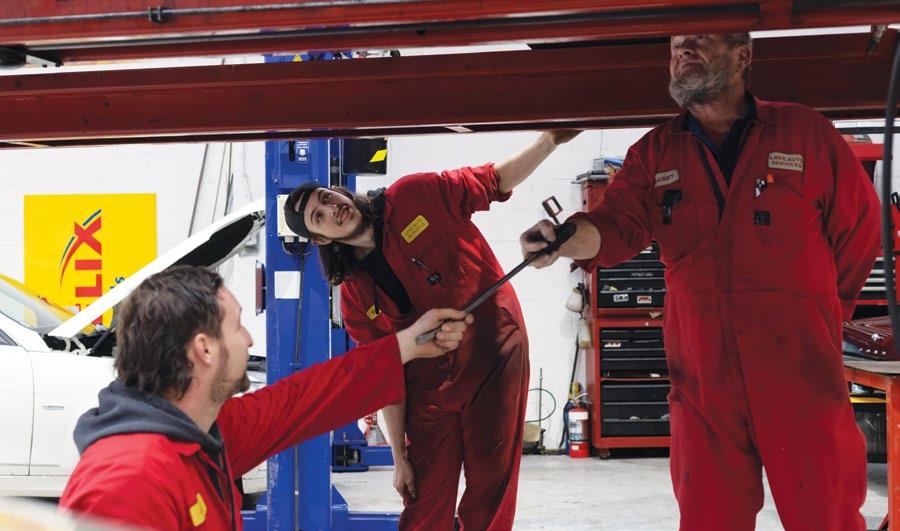
New vehicle technologies are steadily reshaping the automotive industry, and workshops across New Zealand are adapting their businesses in line with these changes. This year, a survey conducted by Capricorn in conjunction with our research partner, Painted Dog, surveyed 178 New Zealand business owners and took a closer look at electric and hybrid vehicles (EVs). The data revealed that many businesses are already servicing these vehicles and expect them to make up a larger share of their workload in the future.
Currently, 77% of workshop owners in New Zealand report servicing electric vehicles (EVs), with EVs making up 18% of their total workload. Looking ahead, businesses anticipate a significant shift in their service mix, predicting that hybrid vehicles will account for 31% of total workload and battery electric vehicles (BEVs) 23% over the next decade. This forecast suggests that the combined EV and hybrid workload is expected to more than double, reflecting the growing adoption of low-emission vehicles and the industry's ongoing transition toward new vehicle technologies, according to research taken from EV & Lithium-Ion Battery Safety Research – 2025 conducted by Painted Dog Research.
To keep pace with these changes, 59% of businesses are actively staying up to date with the latest automotive technologies, and a growing number of business owners plan to increase their focus on electric and hybrid vehicles over the next two years. Specifically, 44% of businesses intend to place greater emphasis on Battery Electric Vehicles (BEVs), while 55% plan to focus more on Hybrid vehicles.
Despite this forward-looking intent, many businesses are facing significant obstacles. A key concern is the lack of awareness around essential safety protocols, coupled with the financial and resource strain of properly outfitting workshops and training staff. Business owners report feeling underprepared for the anticipated rise in EVs and hybrids within their fleets, underscoring the need for clear training pathways, accessible options, and consistent communication of safety requirements tailored to different business types.
Currently, only 18% of business owners feel prepared for an increase in EVs, and 28% feel ready for more hybrids. This highlights the importance of training, hands-on exposure and experience with these vehicles in building confidence and operational readiness.
I feel positive about electric vehicles because they’re clearly the way forward for reducing emissions and making transportation more sustainable. Sure, there are challenges, like the new technology and the need for specialised training, but I’m excited about the opportunities that come with it. The work might be a bit different than what we’re used to, but it’s something that can grow our business and keep us relevant in the future. Over time, as EVs become more common, I believe the technology and infrastructure will improve, and it will get easier to work with them.”
Q. How many EV’s (Electric Vehicles) does your business service or work on each month on average?
Q. How much do you agree or disagree with: I keep up to date with the latest automotive technology?
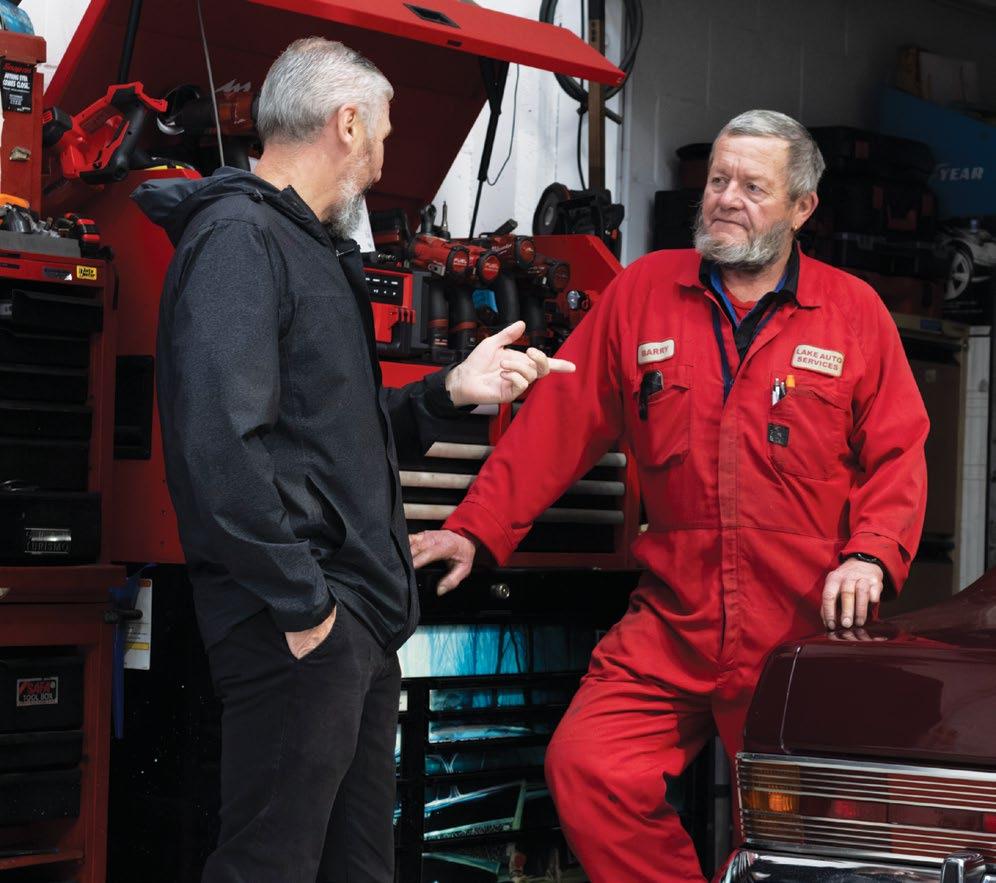
59% of business owners are actively staying up to date with automotive technologies
The shift toward electric and hybrid vehicles is no longer on the horizon – it’s happening now. Members have reported a 400% increase in battery electric vehicles (BEVs) over the past four years, underscoring the rapid pace of change in New Zealand’s automotive landscape. This transition presents both a challenge and an opportunity. By working together, policymakers and industry can ensure the workforce is ready, businesses are equipped, and customers continue to receive high-quality service. Investing in training and technology, such as scan tools and safety equipment to work safely
with EVs and hybrids, could help future-proof the sector and keep New Zealand’s automotive industry moving forward.
For the industry, this is a chance to lead the transition. By investing in training, mentoring, and modern equipment, businesses can strengthen their teams, improve service offerings, and position themselves for long-term success. Support from policymakers – through funding for upskilling, incentives for EV-readiness, and awareness campaigns – can further accelerate this progress and ensure small businesses aren’t left behind.
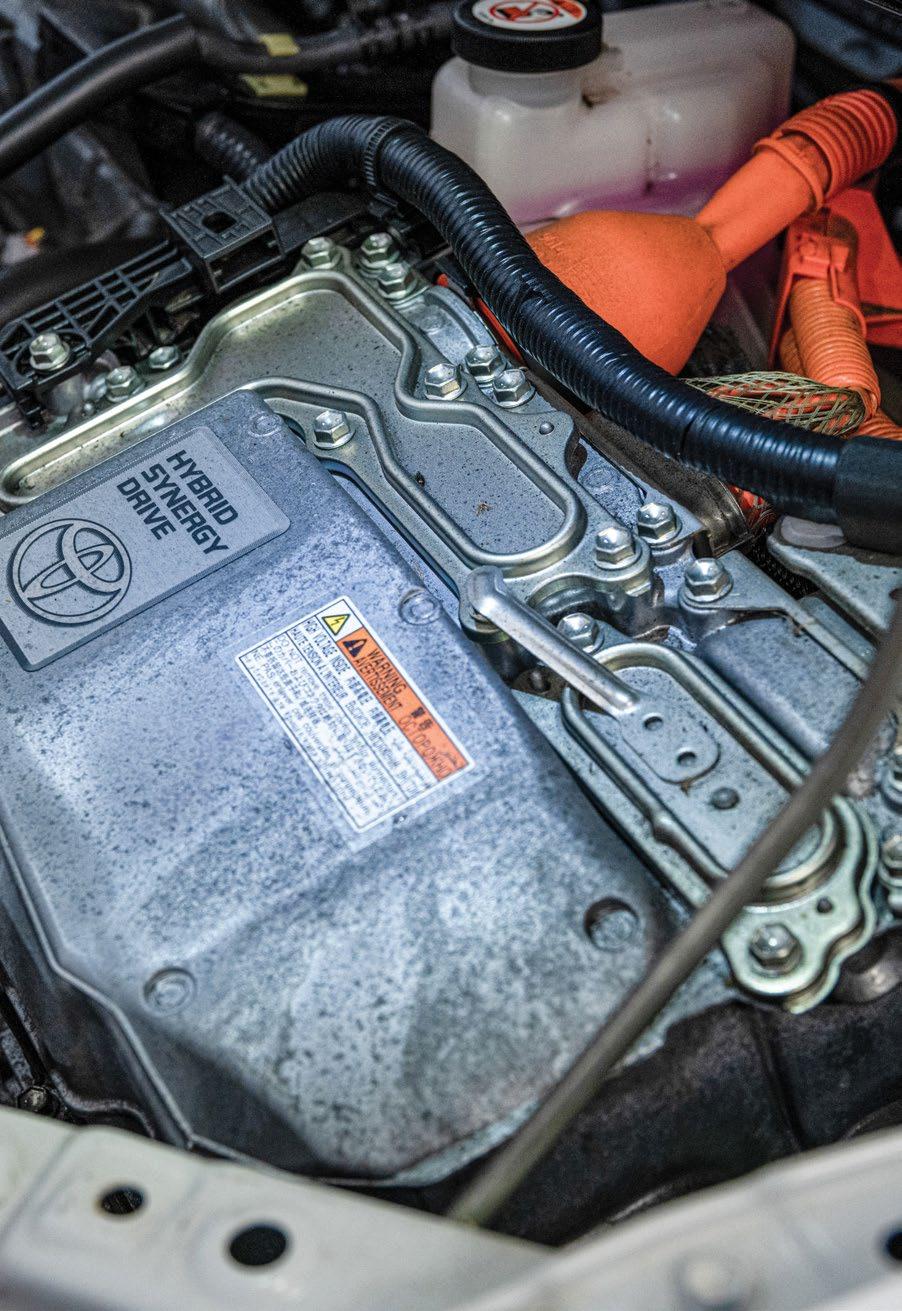
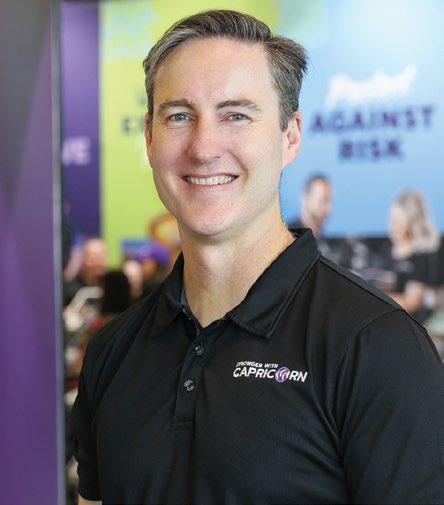
As we wrap up this year’s State of the Nation report, one thing is clear – the automotive industry in New Zealand is not standing still. It’s evolving, adapting, and showing a strong appetite for growth, even in the face of persistent challenges.
Across workshops big and small, business owners are backing themselves. They’re investing in smarter ways of working, setting bold goals, and reporting record turnover. Business owners are showing resilience and are wanting to grow. This is a sign of the sector gaining optimism and a signal that the industry is ready to move forward.
But growth doesn’t happen in isolation. Work-life balance continues to be a pressing issue, affecting productivity, customer service, and the wellbeing of business owners. Yet, there’s momentum building. Business owners are investing in the workforce of the future, with taking on apprentices and more women stepping into technical roles than ever before. These shifts point to a more diverse, future-ready workforce – one that reflects the communities it serves and strengthens the industry’s foundations.
Technology also continues to reshape the road ahead. Electric and hybrid vehicles are becoming part of everyday workshop life, and the desire to learn and adapt is strong. This is a prime opportunity for policymakers and industry to work together – investing in training, upgrading tools, and ensuring the workforce is equipped for what’s next.
For policymakers, these findings offer a roadmap for action. Supporting workforce development, promoting trades in schools, and helping small businesses innovate has the potential to make a real difference. For Members and business owners, the report provides practical insights and inspiration –a reminder that even small changes can lead to big results.
Ultimately, this report matters because it gives a voice to the people who keep New Zealand moving. We thank everyone who took part in the surveys and look forward to continuing the conversation.
Brad Gannon Group CEO, Capricorn
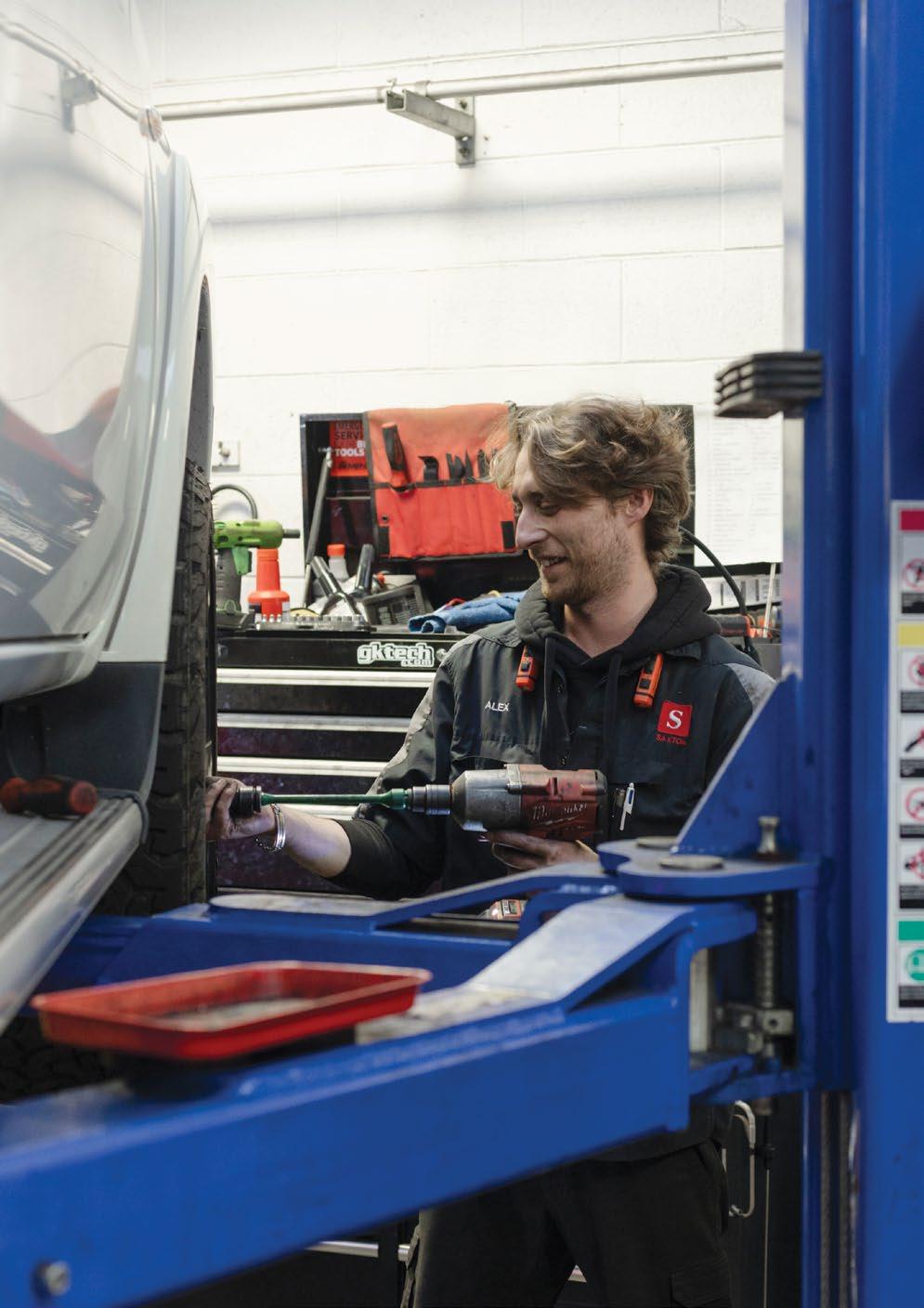
A strong appetite for growth means you’ve got to keep finding ways to do things better. You’ve got to shift with the market and stay ahead.”